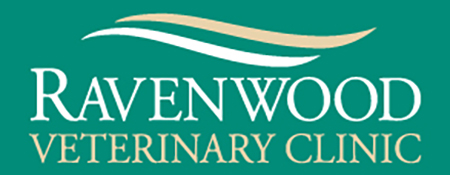
Cats and dogs should always wear collars with licenses and rabies tags as required by state or local law. Break-away collars are recommended for cats.
If a pet has medical problems, a tag with essential medical information should be added.
Microchipping your pet is a more permanent means of identification because it is possible for the collar and tags to fall off.
Pet identification
• Current identification should always be worn on the collar
• Additional temporary identification tag with your out-of-area emergency contact phone numbers
• Photos of your pet and you together (to prove your ownership and to help find your pet if he becomes lost)
• Pet first aid kit, including the Cat First Aid book and/or Dog First Aid book and any medications your pet is taking
Medical records stored in a waterproof container, to include;
• Vaccinations records
• Medical conditions
• Veterinarian’s name and phone number
• Any other special concerns or behavior issues
Note: I strongly recommend using a cloud storage solution such as Dropbox (free) to keep all of the above information available from any computer with internet access.
• Food and water for each pet: a three-day supply for evacuation and a two-week supply for the home, including a manual can opener, if needed, for canned food.
• Food and water bowls
• Bedding/blankets and toys (to help reduce stress and provide comfort)
• Leashes, harnesses and carriers (to transport your pets safely and to ensure your pets cannot escape)
• Litter and litter box for cats
• Garbage bags
• Quart-size storage bags
• Newspapers
• Paper towels
• Bleach (to make a sanitizing solution for cleaning up pet waste, litter box and carrier)
- IMPORTANT EVACUATION TELEPHONE NUMBERS
West Volusia Humane Society – DeLand – (386) 734-2450
Southeast Volusia Humane Society – New Smyrna Beach – (386) 428-9860
Halifax Humane Society – Daytona Beach – (386) 274-4704
Daytona Beach – (386) 226-1400
American Red Cross – (877) 272-7337 Volusia County Animal Control
Daytona Beach – (386) 248-1790
DeLand – (386) 740-5241
New Smyrna Beach – (386) 423-3369 Agricultural Center
Daytona Beach – (386) 257-6012
DeLand – (386) 822-5778
New Smyrna Beach – (386) 423-3368
Pet first aid and supply list
• Cold compress
• Sterile gauze pads, non-adherent (assorted sizes)
• Roll gauze, two-inch width, cotton
• Roll cohesive wrap, three-inch width (stretches and clings to itself)
• Adhesive tape, hypoallergenic
• Absorbent compresses, assorted sizes (sometimes called gauze sponges)
• Assorted bandages and compresses
Medications and solutions
• Antibiotic ointment (triple, available at pharmacies)
• Diphenhydramine (Benadryl®) in a dose appropriate for your dog’s size if approved
• Hydrogen peroxide, three percent (has an expiration date)
• Glucose paste or corn syrup (if your pet is diabetic or has a history of low blood sugar)
• Epsom salts (to make saline solution)
• Petroleum jelly
• Rubbing alcohol (isopropyl)
• Sterile, water-based lubricant (such as KY® Jelly) that washes off easily
• Sterile eye lubricant (available at pharmacies)
• Sterile saline eye wash (available at pharmacies)
• Styptic powder (to stop bleeding from broken nails, available at pet stores)
Tools and utensils
• Grooming clippers
• Nail clippers appropriate for your pet’s nails
• Needle-nose pliers (for dogs only)
• Nylon leash (at least one)
• Penlight
• Rectal thermometer, non-mercury/non-glass
• Scissors, small, with blunt end
• Syringe, baby dose size
• Tweezers
• Wire cutters, small (to cut barb off embedded hooks if you take your dog fishing)
• Expired credit card (to scrape away stingers)
• Information
• Cat First Aid book and/or Dog First Aid book
• List of emergency telephone numbers
Miscellaneous
• Blanket (emergency or “space” blanket)
• Clean cloth
• Disposable gloves (non-latex)
• Muzzle
• Towel
• Any special items your pet may need, such as medications
What's Next
Call us to schedule an appointment.
Meet with a doctor for an initial exam.
Put a plan together for your pet.

